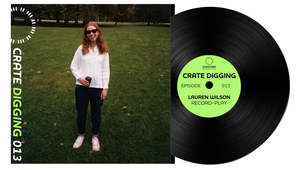
Is AI Really the Future of Meaningful Marketing?

Current conversation on artificial intelligence takes for granted that it's the catch-all ‘future of everything.’ In terms of marketing, many state that a combination of AI technology and big data is all that marketers will need to make a campaign ‘sticky’ and relevant. But is this optimism well-founded?
Obviously there is an increasing role for AI in the production of content, but that does not make it a one-stop solution. “Marketing is around the emotional and psychological aspect of a consumer’s experience,” says Brody Clemmer, digital product manager at Richardson, “and what AI does not do well currently is cognitive processing.” In other words, AI can give you a summary of mass of data; it can even, sometimes, replicate something that is popular; but it cannot innovate, and it is not part of genuine culture, produced by and for people.
As industry analyst David Raab says: “What AI won’t be able to do for a long time is to come up with radically new ideas, or to judge which random possibilities are actually promising enough to be worth testing.” AI still requires human guidance to know what it is searching for.
The danger of relying on algorithms to dictate which trends or styles a brand may want to associate themselves with is that any AI-orientated marketing tools are developed around recognising popular trends and activity, such as highly exposed artists and music. But you don’t need AI (or us) to tell you that someone such as Ariana Grande is hugely popular. You do, however, need a human mind to understand cultural sensitivities and contexts – which can help unearth the next Ariana Grande.
To be on trend, or even to set your own, necessitates adopting and promoting a singular voice which you take an active role in crafting. Music use is no different. Brands must be confident and original in their use of music and its integration into their marketing campaigns. They must also be aware of the cultural resonance and discourse surrounding particular scenes and acts.
While the sync and royalties market is still somewhat dominated by the ‘majors,’, Record-Play is dedicated to creating opportunities for independents and, in the process, bringing marketers closer to the real influencers and innovators of tomorrow. We agree with Ayla Owen, head of music at creative agency BBH, when she says that “the potential for independent artists to help shape a brand’s music strategy through a meaningful, relevant collaboration is huge.”
If you’re looking for ‘the new,’ an automated system will not be able to tell you what to search for, or even where to find it. Algorithms may be useful in analysing data in order to spot trends and connections, but they can’t compete with our human understanding of, and personal connections with, the music, musicians and cultural significance behind those results. The fact that this cannot be ‘machine learnt’ means that bringing human sentiment and understanding into music marketing campaigns will remain invaluable.










